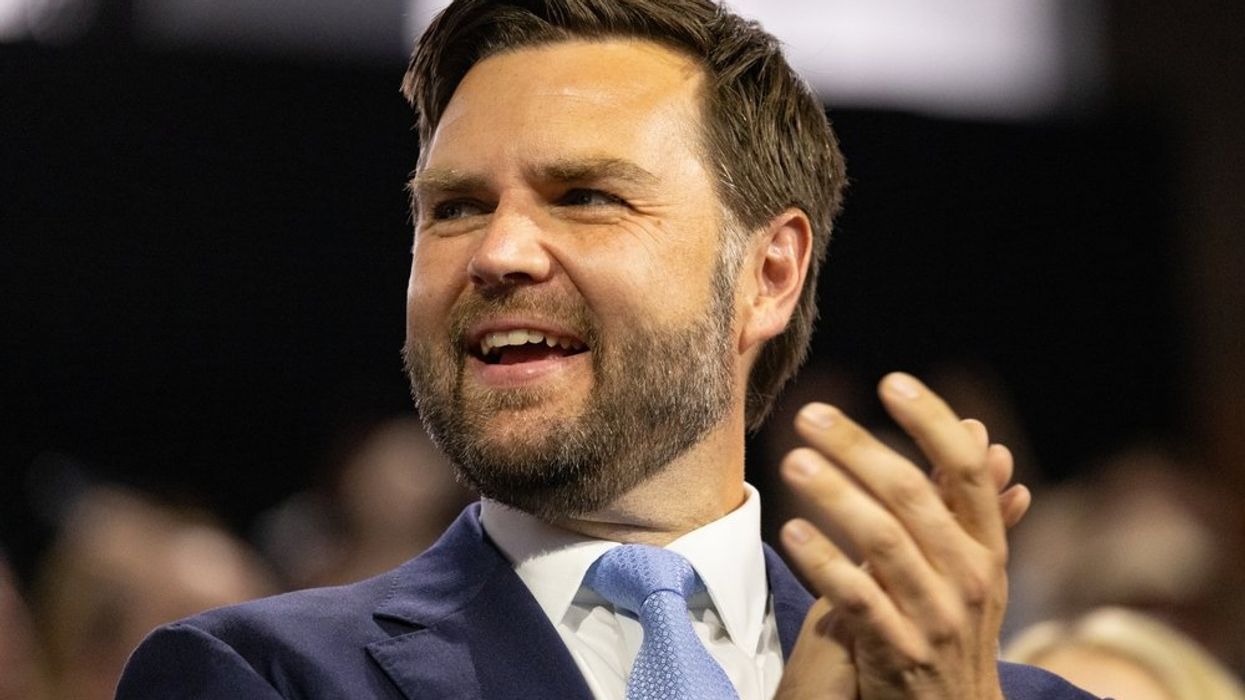When JD Vance's book "Hillbilly Elegy: A Memoir of a Family and Culture in Crisis" came out in 2016, it got a variety of responses from liberals and progressives. Some on the left accused the book of shaming the poor; others, however, liked the fact that someone who was right-of-center politically took an in-depth look at the social and economic problems that rural whites were facing in Appalachia.
Vance, at the time, was a scathing critic of Donald Trump and the MAGA movement. But like Sen. Lindsey Graham (R-South Carolina), Sen. Ted Cruz (R-Texas), Rep. Elise Stefanik (R-New York), and Secretary of State Marco Rubio, Vance flip flopped and enthusiastically supported the far-right movement he once condemned.
In a think piece published on May 19, The Atlantic's George Packer compares what Vance might have been to what he ultimately became. And he laments that Vance did what was expedient instead of what was ethical or morally right.
READ MORE: 'Debt bomb': Morning Joe explains why Moody’s downgrade is 'siren going off' for US economy
"JD Vance poses a problem, and at its core is a question about character," Packer argues. "In the years after the 2016 election, he transformed himself from a center-right memoirist and public speaker, offering a complex analysis of America's social ills and a sharp critique of Donald Trump, into a right-wing populist politician whose illiberal ideas and vitriolic rhetoric frequently out-Trump the original. According to Vance and his supporters, this change followed a realization during Trump's first term that the president was lifting up the fallen working class of the Heartland that had produced young JD."
Packer continues, "To help his people, Vance had to make his peace with their champion. According to his critics, Vance cynically chose to betray his true values in order to take the only path open to an ambitious Republican in the Trump era. And as a convert under suspicion, he pursued it with a vengeance."
Packer notes that in 2016, the success of "Hillbilly Elegy" made Vance "a celebrity" and "the anointed spokesman for the 40 percent of the country that comprises the white working class."
"With his gifts of intellect and rhetoric, Vance might have brought the country's conflicting strands together," Packer observes. "They had combined to make him, and he knew them deeply — their flaws, their possibilities, their entwined fate. Instead, he took a path of extreme divisiveness to the peak of power, becoming a hardline convert to the Catholic Church, post-liberal populism, and the scorched-earth cause of Donald Trump."
READ MORE: Revealed: Most Americans doubt Trump's ability to fix the economy
Packer adds, "Vance became a scourge of the elites among whom he'd found refuge — a kingpin of a new elite, avenging wrongs done to his native tribe."
By the time Vance ran for the U.S. Senate via Ohio in 2022, he had gone total MAGA and fully embraced Trump's divisive us-versus-them rhetoric.
"Vance could have run for the Senate as a populist without maligning half his compatriots — liberals, immigrants, women without children — as hostile to America," Packer argues. "He could have become a father without devoting a speech to mocking the 'childless left.' The Catholic Church didn't command him to stop caring about human beings in other countries, or to value Israel more than Ukraine because most Americans are Christian and Jesus was born in Bethlehem, not Kyiv."
Packer continues, "He could have turned away from his Ivy League credentials after they stopped being useful without declaring war on higher education and calling professors 'the enemy.' He could have put aside his law degree and still held on to what it taught him about judicial independence and due process."
READ MORE: 'OK, seriously. Come on!': MSNBC panel laughs off Trump accusation against ex-FBI director
Read George Packer's full article for The Atlantic at this link (subscription required).


